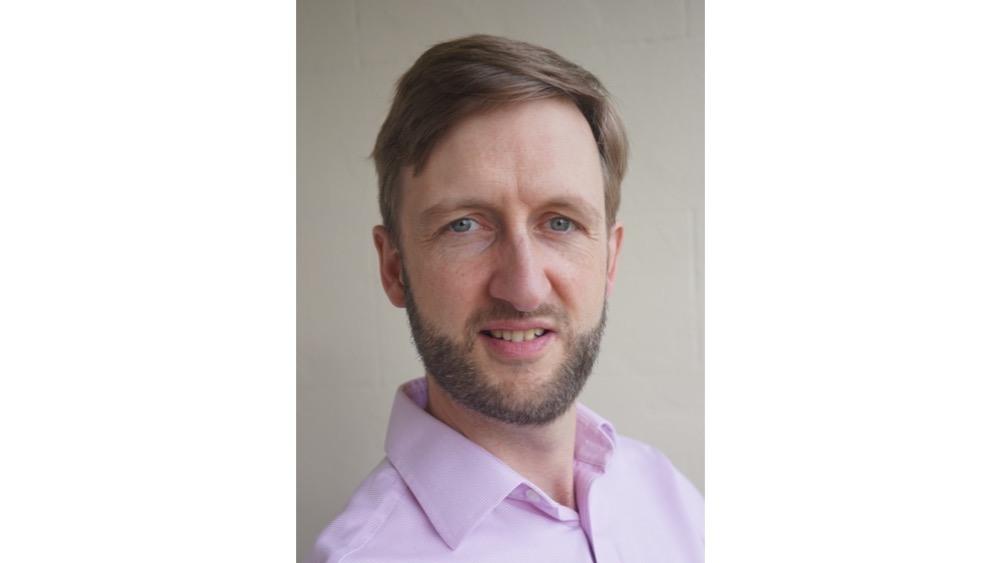Huntington’s disease is an area of high unmet clinical need, with no effective treatments available to stop or slow the progression of the disease. New Group Leader Dr Tom Massey joins the UK DRI at Cardiff where, as a clinician scientist, he wants to bridge the gap between the lab and the clinic, developing new therapeutic targets for Huntington’s disease (HD) and related conditions.
Dr Massey’s work aims to identify new genes involved in the onset and progression of the disease that could go on to be developed as drug targets. Here, he gives an overview of his research, why he’s excited to join the UK DRI, and where he hopes his work will lead.

With Dr Tom Massey
(New Group Leader, UK DRI at Cardiff)
What attracted you to the UK DRI?
I attended the UK DRI’s internal conference, Connectome, in Brighton last year, and I was struck by the breadth and depth of the science that was being carried out across the different centres around the UK. I found it very exciting and learnt a lot. But I also felt that I could contribute to translation of this research into clinical outputs through my role as a clinical academic Neurologist. I spoke to Prof Julie Williams here in Cardiff about joining the UK DRI after I got my MRC Clinician Scientist Fellowship, and we felt there would be a good synergy between my clinical and research backgrounds and the more basic science going on in the UK DRI here in Cardiff and more widely across the Institute as well.
What will your research programme focus on?
My research interest is in Huntington's disease specifically, but also in the broader family of repeat expansion disorders caused by expansions in DNA. They are all likely underpinned by similar disease mechanisms and so therapeutic development in one could be applicable across the board. Many of these repeat expansion disorders cause neurodegeneration or dementia of one sort or another. My previous work looked at genetic variants in people with HD that can affect the disease course. These so-called genetic modifiers have been associated with significantly altered onset or progression of disease in people, and therefore validated as potential therapeutic targets.
Building on that genetic work, my new programme of work now takes those modified genes forward in stem cell and Drosophila models of HD to try and identify the mechanisms driving the disease. Further downstream we want to take some of these most promising potential therapeutic targets forward for more detailed cellular and molecular characterisation before collaborating with biotechnology companies and the Medicines Discovery Institute here in Cardiff to develop therapeutics.
Why is this an important area to explore? And what is the ultimate aim of your work?
HD is the most common form of dementia caused by a single gene mutation. It directly affects about 1 in 8000 in the UK but has a big impact on many others including families and carers. HD is also one of an increasing number of neurodegenerative diseases caused by repeat expansions in DNA. None of these conditions have an effective treatment available, so further research in this area is essential. Ultimately, we are aiming to find new ways of slowing or preventing HD by leveraging our knowledge of genetic modifiers in patients. This is an ambitious goal, but we have already made great progress in the last few years.
What are you particularly excited about in your field at the moment?
The advent of new technologies such as single cell sequencing and spatial transcriptomics is giving us greater insight into the pathology of HD in the human brain than ever before. And coupled with that, the genetic modifier work has led to an influx of interest and investment from the private sector: there are numerous biotechnology and pharmaceutical companies that are now looking at developing some of these new therapeutic targets. Together these developments are supercharging translational HD research. I believe that we're on the cusp of at least one or two new therapies being trialled in the clinic based on these genetic modifiers in the next five years, which I think is really exciting.
Finally, what’s the most important thing you have learned from your academic career so far?
I think the most important thing is something I learned from my mentor, Prof Lesley Jones, who sadly died last year: to be open with your data and to be open to collaboration, because that's the only way that you're going to make progress fast enough to remain at the forefront of your field. And learning from your patients and continually involving them in your research, both in developing your ideas and feeding back your results, is essential for maintaining a focus on your research objectives. As a clinician scientist, being positioned at that junction between the lab and the clinic is critical.
To find out more about Dr Tom Massey’s work, visit his UK DRI profile. To keep up to date with the latest UK DRI news and events, sign up to receive our monthly newsletter.
Article published: 26 September 2023
Banner image: Shutterstock/Kateryna Kon
